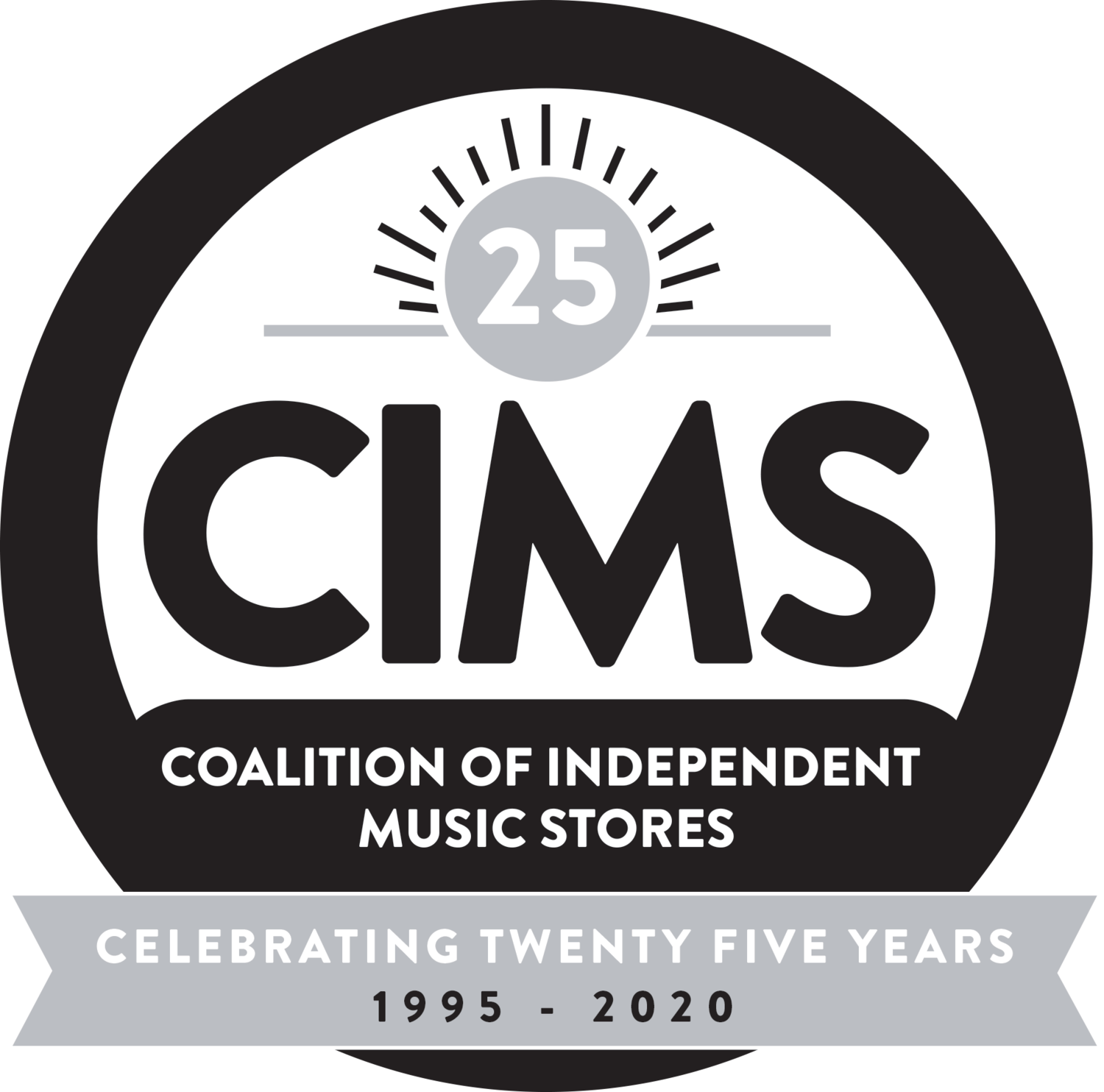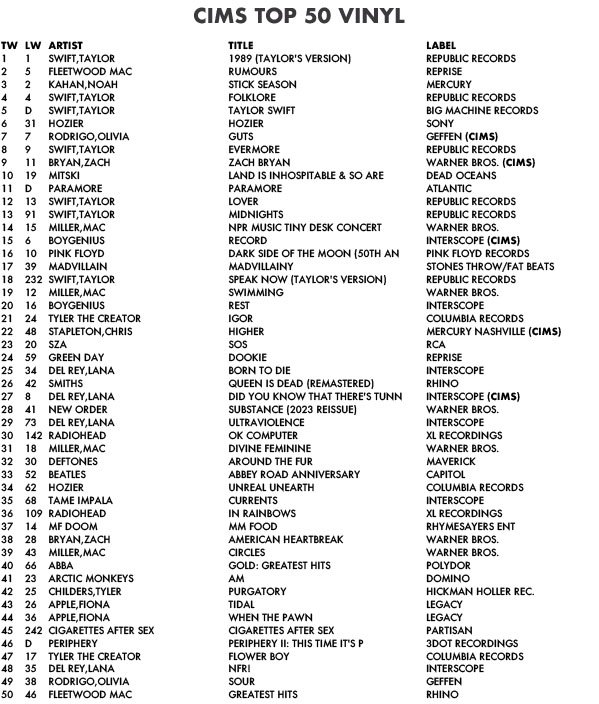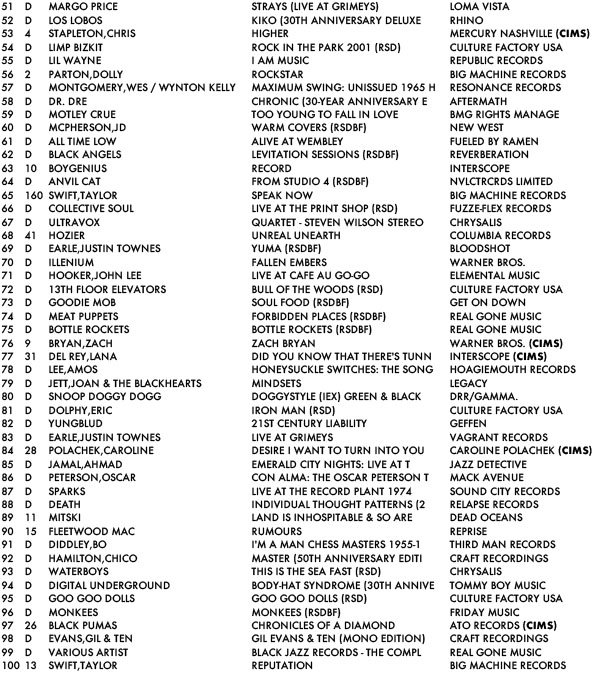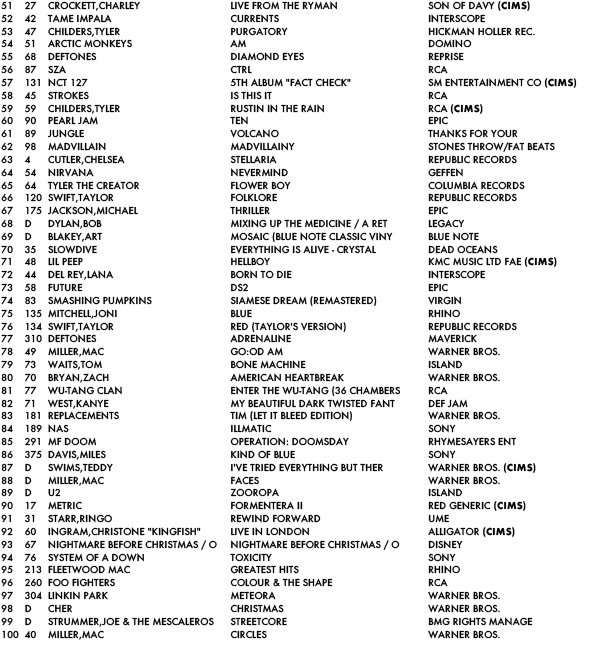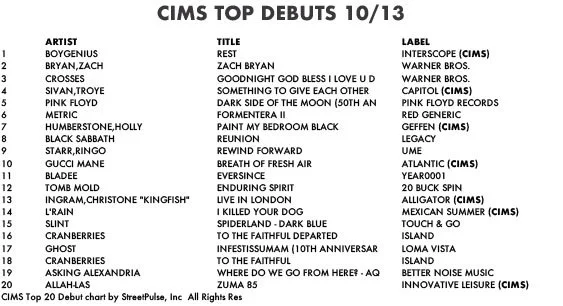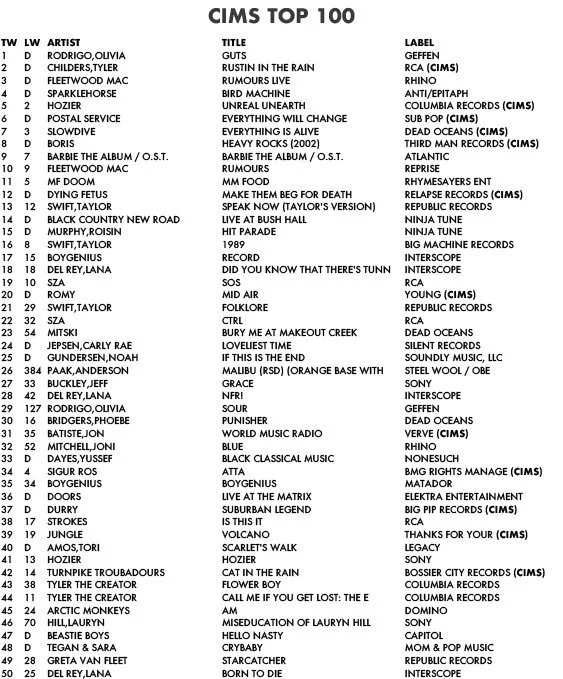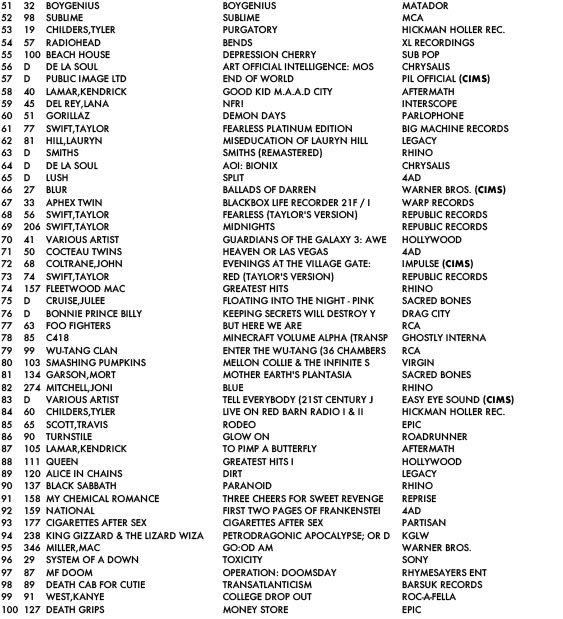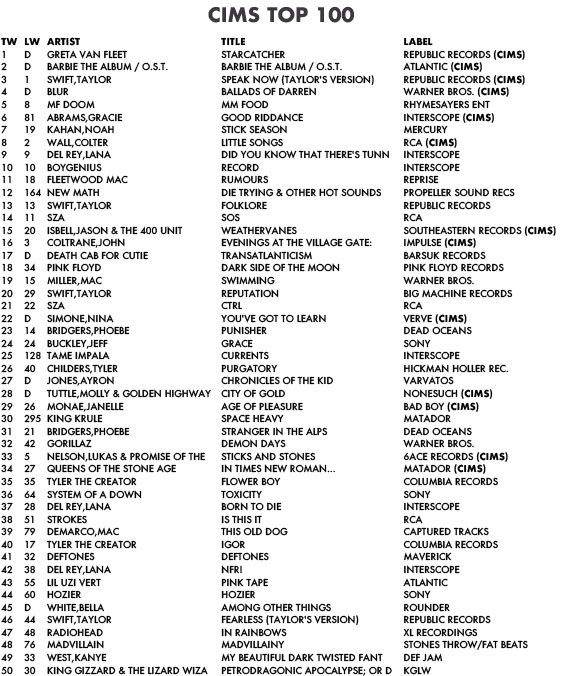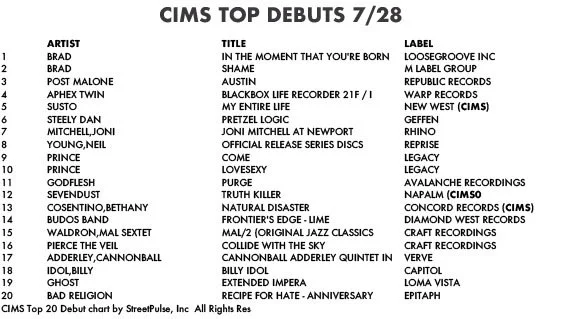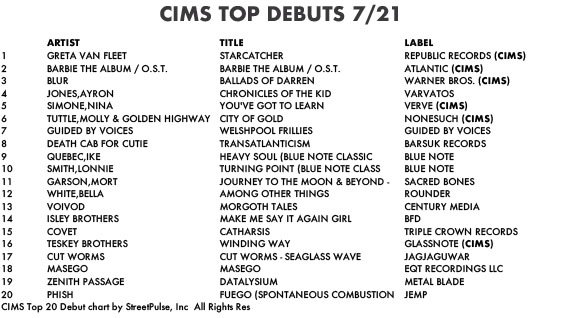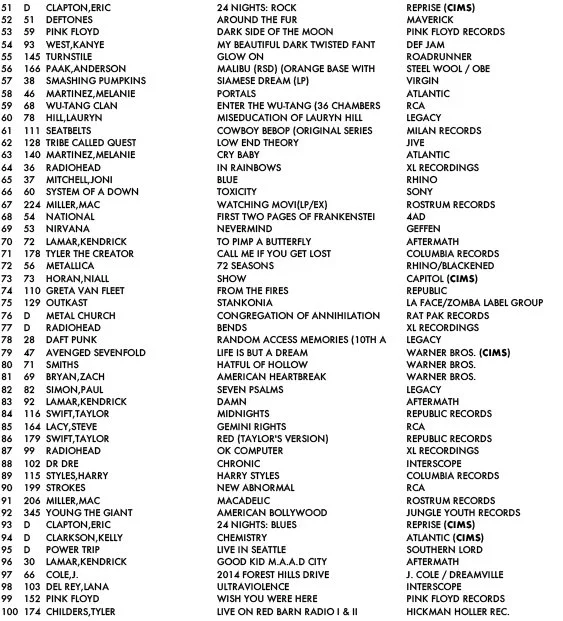A NEW RECORD STORE VINYL SALES CHART
A COLLABORATION BETWEEN HITS, STREETPULSE, INDIE RETAIL COALITIONS, RECORD STORE DAY AND MUSIC BIZ GIVES INDIE RECORD STORES AN OUTLET AS THEY SAY “BYE BYE BYE” TO LUMINATE
Eighteen years ago, most people would have been hard-pressed to come up with a weekly list of ten albums that sold more than a few copies on vinyl, much less a chart of fifty. All these years later, sales of vinyl albums exceed tens of thousands every week, representing hundreds of millions of dollars in annual business. Independent record stores are at the heart of this exciting, positive section of the industry and their collective sales are an increasingly important aspect of the business. A new chart, the Vinyl 50, published by HITS and powered by StreetPulse, begins this week as a brand-new place for stores to show off their dominant place in vinyl’s “resurgence”.
https://hitsdailydouble.com/news&id=339073&title=INTRODUCING-THE-INDIE-VINYL-SALES-CHART
And it's not just all about the “Benjamins” or the number of vinyl albums sold—more than that has grown in the past two decades: so has the sheer number of record stores. Thanks to a whole new generation of entrepreneurs, there are now approximately 1,500 record stores that both celebrate Record Store Day and sell new vinyl each week. Pretty exciting stuff! In these stores music is shared, families bond, friendships are forged, communities are supported, dreams come true and records are sold. Expansion! Growth! Heck, even Taylor Swift made an album just for these indie record stores, selling 75,000 copies on vinyl in a single week. That's just how much record stores matter.
Historically, record stores have reported their sales to Nielsen Soundscan--since purchased by Luminate-- providing Luminate and Billboard with one of the biggest feel-good stories of the music industry in the last few years, with year-over-year growth outpacing even the most positive projections. Change and expansion requires support, though, especially when what’s growing is independent businesses run by people who live and breathe music but aren’t necessarily all at the same level of business and technology savvy. Instead of ramping up resources to help record stores, increasing both reporters and the accuracy of their data, Luminate's response to this extraordinary growth and new energy was to… well, ignore it. To invest no time, no money, no employees, and no resources into reporting the exploding sales of vinyl with these indie record stores - a dynamic sector of the music industry that many consider its heart and soul. Indeed, behind the scenes, Luminate’s relationship with record stores and those who represent them was deteriorating.
"It isn't easy being an independent business, but over the past two years Luminate/Billboard somehow found it within themselves to make it harder by creating new and depressing ways to kick out the sales of albums credited to record stores, including, but not limited to, sales made through a store’s website,” says Record Store Day Co-Founder and President of the Dept of Record Stores coalition Michael Kurtz. “If a store had an artist appearance and sold the artist’s albums to fans, or if a store sent in proof of vinyl sales five different ways but missed one Luminate rule, or even if the store did everything according to the changing rule sets, Luminate might screw up and kick out the album sales anyway. Even legacy stores who have been in business for forty years or more had their album sales mysteriously zeroed out. Making matters worse, Luminate replaced their lone employee dedicated to working with record stores with a merchant service email address. It was untenable and inevitable that they would leave this mess."
Last October, Luminate announced their decision to stop weighting physical record sales on a specific date, meaning that without a VERY LARGE influx of reporting stores in a VERY SHORT time, the charts would go from being semi-representational of the actual sales of physical media to looking like physical sales fell off a cliff. Record stores and retail coalitions were shocked by this decision, and so were the people who use Luminate's data to make daily decisions, including distributors, major and independent record labels, publishers, managers but also spinning out into the businesses that press and ship the records, make the turntables they’re played on and more. So many people, publicly and privately, called on Luminate to change their minds, or at least to bring on a representative sample of stores before unweighting sales, as that would at least mitigate the harm to the charts this unweighting would cause. Luminate's communications about this in the short three months since they announced it were essentially pleas to have the industry help them quickly get more stores on board-- but no changes have been made on Luminate's part to improve the relationship, make onboarding easier, or create transparency about why certain sales are allowed to count and others are thrown out.
No one should be surprised that the majority of independent record stores reporting to Luminate have decided to stop. Why would they bend over backwards to have their data be used in a way that every corner of the business has said is, at best, a very very bad idea? Especially after they’d spent time watching Luminate make their decisions without consulting them or the people who really understand the quirky but important nature of the indie record store world? “We understood how, historically, the industry looked to the Billboard charts and the data that Luminate provides when making important decisions that affect our businesses, so we spent the better part of two years trying to forge and establish a true working relationship with Luminate,” says Coalition of Independent Music Stores President and Record Store Day Co-Founder Andrea Paschal. “The hope was that an actual partnership could be beneficial to everyone. Instead, we were brushed aside when trying to provide valuable insight, ignored, and left in the dark, often finding out by word of mouth after the fact about major decisions that affected our stores. Decisions that continued to erode and marginalize the efforts and sales taking place in indie stores specifically, while also misrepresenting the contributions of these unique retailers to the overall tally of physical goods sold, and to the music industry as a whole, because their reporting is based on what you would call a mere data sample representation of existing independent record stores. It became pretty clear that there was no real intention to change that."
Ultimately, it’s all about business decisions, according to Music Biz President Portia Sabin. "Luminate made a business decision to unweight physical sales, and there are consequences to every decision. Luminate has the right to make whatever decisions it wants for its business, but so do retail stores."
Eric Levin, founder of the Alliance of Independent Media Stores, another Record Store Day Co-Founder and crucially for this topic, the owner of legendary and beloved Atlanta record store Criminal Records sums it all up: "My store has been a proud Soundscan reporter since 1991, we treated it like a badge of honor. Status gave us access to great in-store appearances and access to co-op advertising. We’ve made so many friends with artists, labels, distributors and management and those relationships all remain. Our commitment is to the lifetime of an artist. When Luminate took over and began enforcing new rules and regulations on us, our relationship with them was over. Plus, they were rude. As Bobby Hill said on King of the Hill: “That’s My Purse, I Don’t Know You.”
